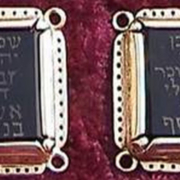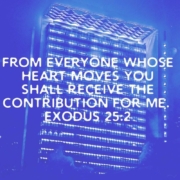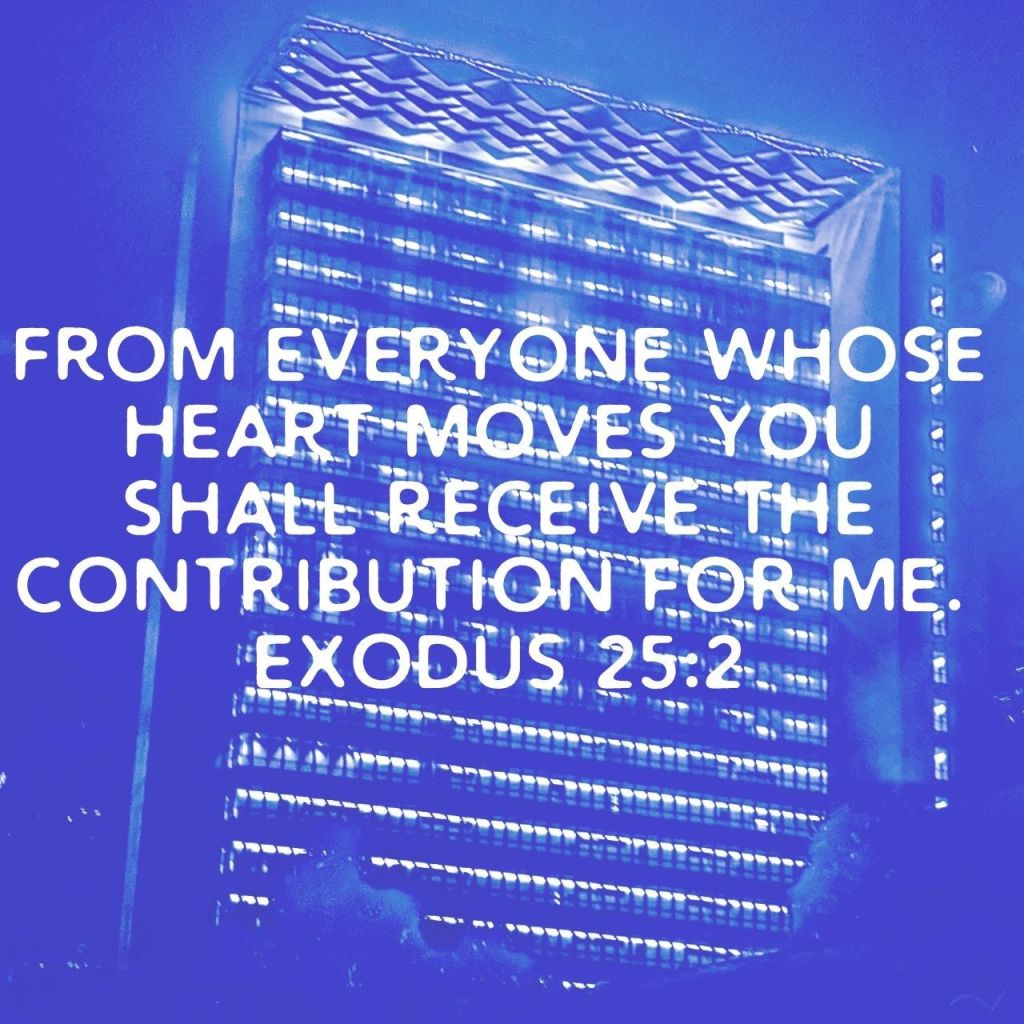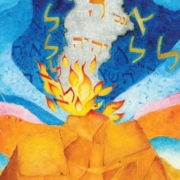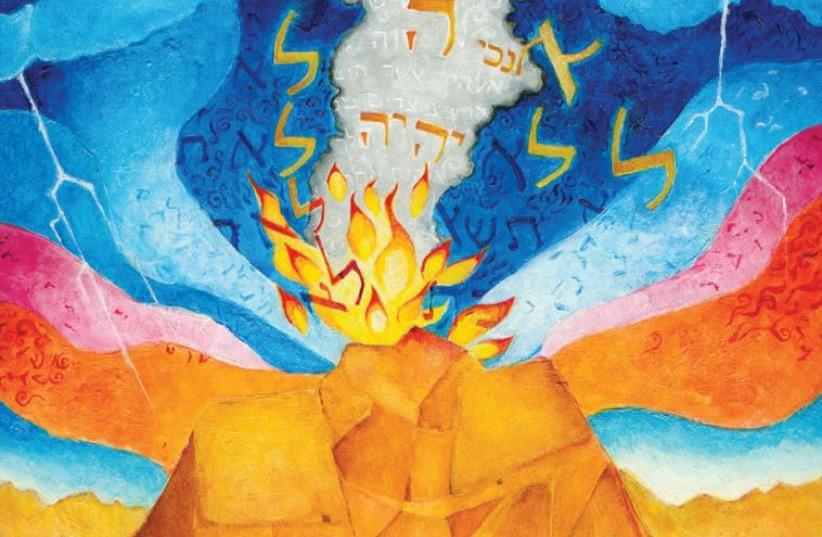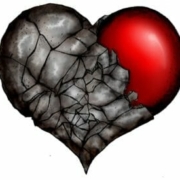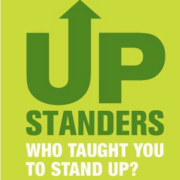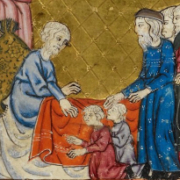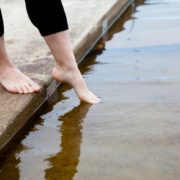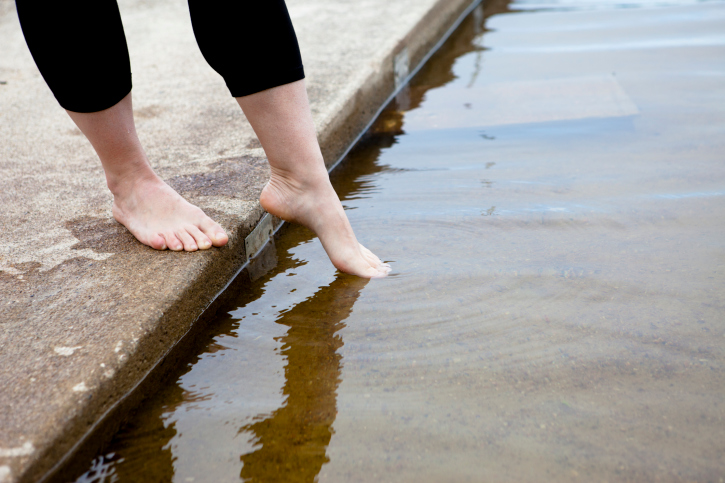A d’varling for the end of week five of covid-19 sheltering-in-place.
As we leave Pesach behind we set out into the wilderness, trusting that somehow we’re moving toward Sinai, toward revelation, toward connection. The spiritual practice of counting the Omer is tradition’s way of helping us link Pesach with Shavuot, liberation with revelation, the constriction we’re leaving behind with the expansiveness and covenant we’re heading toward.
This year it may be hard to focus on that count because we are doing another kind of counting: how many days we’ve been quarantined / sheltering-in-place / socially distancing / staying home. How many days and weeks it’s been since life felt “normal.” And how many weeks it might be before we can return to seeing each other again, being with each other again.
The first thing I want to do is give all of us blanket rabbinic permission to “mess up” the Omer count. It’s okay if we forget. It’s okay if we miss a day. It’s okay if we can’t focus on the kabbalistic meanings of the seven qualities we’re called to cultivate. A lot of our brainspace is dedicated right now to the news, the pandemic, what we’re going to eat, who’s sick and who’s well.
That’s normal. And it’s okay. And… that’s exactly the wilderness in which we’re wandering this year — as a people, as a nation, as a planet. Which means we’re right where our core ancestral story says we should be. In the wilderness. Not totally sure where we’re going or how we’re going to get there or what losses we’ll incur along the way. Maybe uncertain. Almost certainly afraid.
The Hebrew word bamidbar, “in the wilderness,” shares a root with the verb l’daber, “to speak.” The wilderness can be a place of fear, a place of not-knowing, a place that feels dangerous. And that’s exactly the place where we hear God’s voice. The place where holiness speaks to us. The revelation at Sinai takes place in a place that no one owns, in the wilderness, in not-knowing.
As I watch the pandemic play out at hospitals around the world, I’ve been thinking a lot about the time I spent as a student chaplain at Albany Medical Center almost 15 years ago. I remember that hospitals are profoundly holy places — not despite our fear and not-knowing, but precisely because of it. When our hearts are cracked open, they also open to connection.
It’s like Jacob said when he woke from the dream of the ladder with angels moving up and down: “God was in this place, and I — I did not know!” God is always in the place where we are, when we are there fully. A crisis like this one can focus us. It can make us really present, which may be uncomfortable. And it can open us to God’s presence, which may be uncomfortable, too.
The whole world is wandering in the wilderness of this pandemic. We don’t know how we’ll get to the other side, or how long it will take, or what losses we’ll incur along the way. We’re not alone in this. We may be alone in our homes, but we’re not existentially alone. We’re all in this together. The spread of the virus reminds us that we’re more connected than we ever knew.
Last Shabbat, in the Torah reading for the Shabbat during Pesach, we heard God say to Moses, “I will go in the lead and will lighten your burden.” That verse is bringing me comfort this week: the idea that God is here with us in the wilderness. God is walking with us. God is keeping us company. And our souls are keeping each other company, too, even when we are alone.
May we feel each others’ presence in this time of separation. May we feel God’s presence in this time of separation. May we hear the voice of holiness speaking to us in this wilderness. May we open ourselves to the voice of love, the voice of justice, the voice of hope. And may we build a world of greater justice and love — for everyone — when we make it to the other side.
This is the d’varling that Rabbi Rachel offered at Kabbalat Shabbat services via zoom this week (cross-posted to Velveteen Rabbi.)


